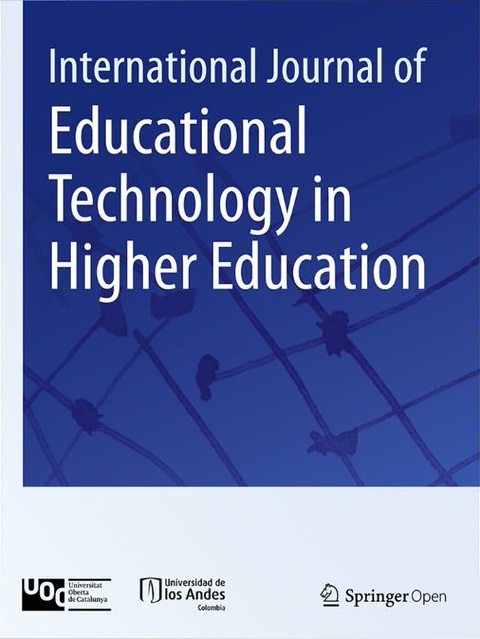STEM教育电子学习活动中互动反馈的情感反应建模
IF 16.7
1区 教育学
Q1 EDUCATION & EDUCATIONAL RESEARCH
International Journal of Educational Technology in Higher Education
Pub Date : 2023-05-07
DOI:10.46328/ijte.366
引用次数: 0
摘要
技术与教育的日益融合,特别是在STEM领域,往往侧重于其客观优势,而忽视了其情感潜力。为了探索这种潜力,基于感性/情感工程的一些原则,对六个学生之间关于以前的电子学习经历的对话中的501个干预进行了初步分析。分析揭示了对个性化反馈、自适应节奏和表达可能性的需求。基于确定的需求,设计了三个活动(基于动态推理的小程序和在太阳运动中情境化的小程序),通过它提供的反馈来探索工具的情感价值。本实验以13名日本大学工科学生为研究对象,根据反馈的类型(任务型/建构型、自我型/动机型)和目的,以及基于教学反馈取向量表的一些指标,对实验结果进行分析。为每个学生构建的模型显示,那些认为反馈价值较高的学生在收到反馈的目的和选择的反应(完成-积极,纠正-消极)之间表现出更大的关系。此外,我们发现所提出的模型可以根据反馈的潜力为未来的设计提供信息,以促进积极的反应。本文章由计算机程序翻译,如有差异,请以英文原文为准。
Modeling Affective Response to Interactive Feedback in STEM Education E-learning Activities
The growing integration of technology into education, particularly in the STEM fields, has tended to focus on its objective advantages, ignoring its affective potential. To explore this potential, based on some principles of Kansei/Affective Engineering, an initial analysis was conducted considering 501 interventions in a conversation among six students about a previous e-learning experience. The analysis revealed the need for personalized feedback, a self-adapted pace, and the possibility to express. Based on the identified needs, three activities (applets based on dynamic reasoning and contextualized in the movement of the Sun) were designed to explore the affective value of the tool through the feedback it provided. Thirteen engineering students at a Japanese university participated in the experiment and the results were analyzed considering the type (task-focus/constructivist, self-focus/motivational) and purpose of the feedback, as well as some indicators based on the Instructional Feedback Orientation Scale. The model constructed for each student revealed that those who attributed a higher value to feedback showed a greater relation between the purpose of the feedback received and the reaction selected (completion-positive, correction-negative). Furthermore, it was found that the proposed model can inform future designs based on the potential of the feedback to promote positive reactions.
求助全文
通过发布文献求助,成功后即可免费获取论文全文。
去求助
来源期刊
CiteScore
19.30
自引率
4.70%
发文量
59
审稿时长
76.7 days
期刊介绍:
This journal seeks to foster the sharing of critical scholarly works and information exchange across diverse cultural perspectives in the fields of technology-enhanced and digital learning in higher education. It aims to advance scientific knowledge on the human and personal aspects of technology use in higher education, while keeping readers informed about the latest developments in applying digital technologies to learning, training, research, and management.

 求助内容:
求助内容: 应助结果提醒方式:
应助结果提醒方式:


